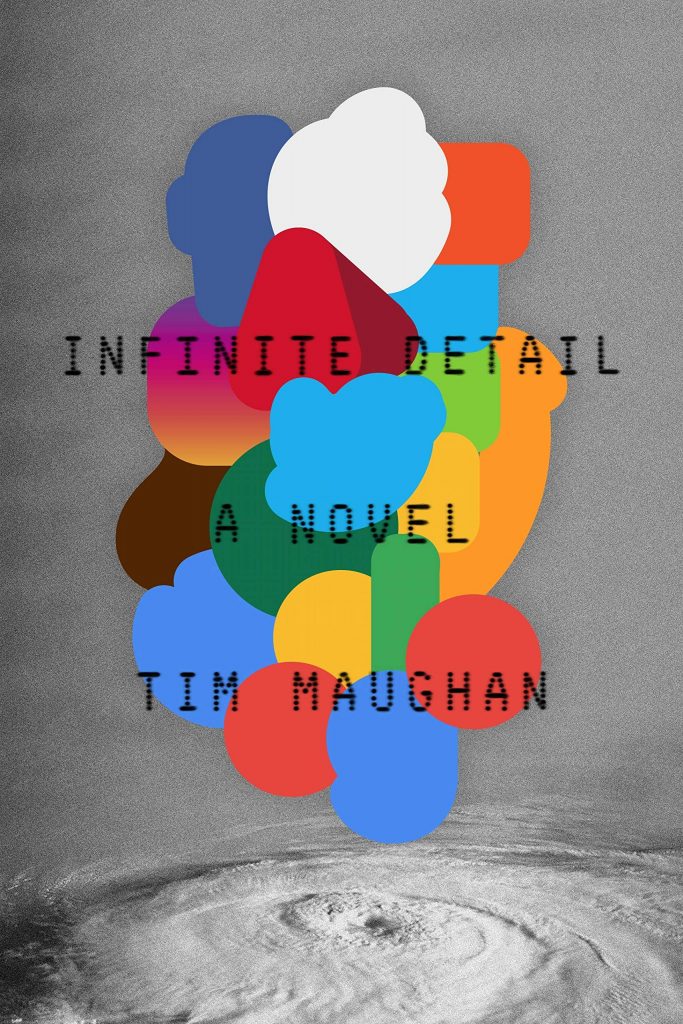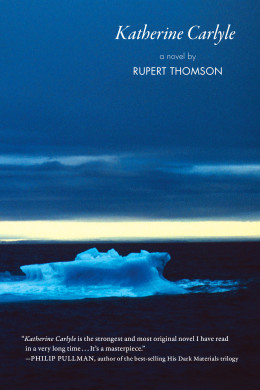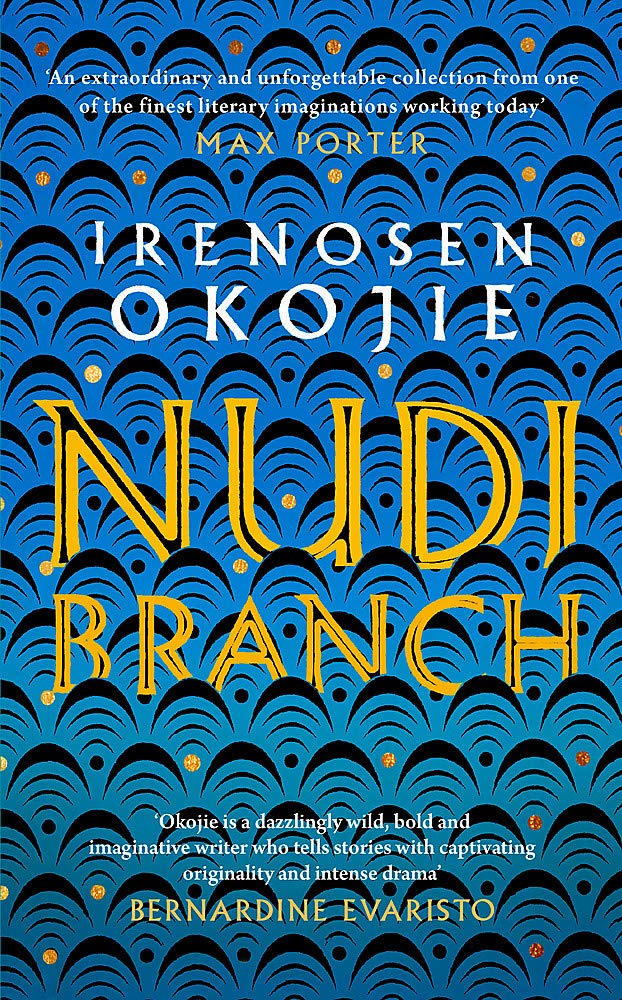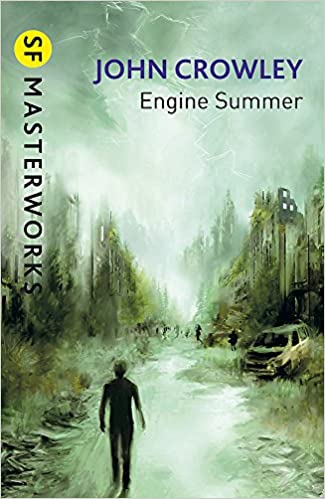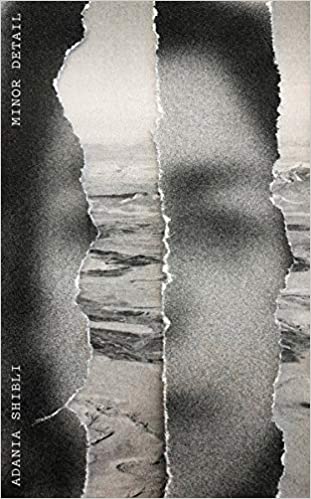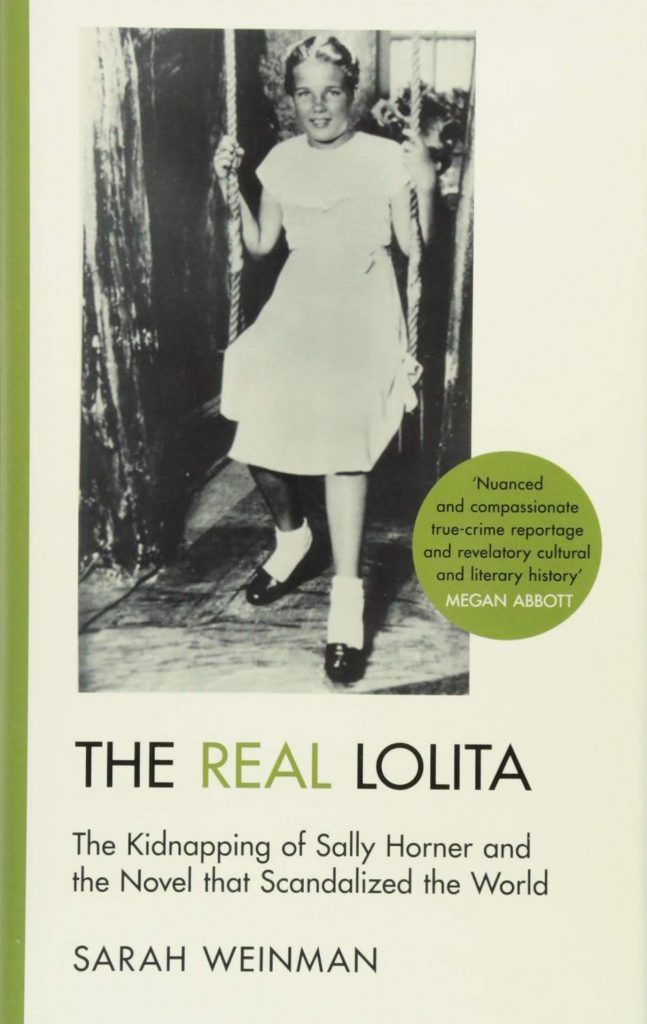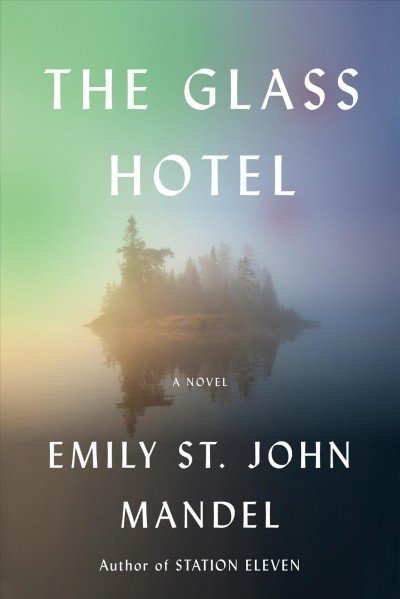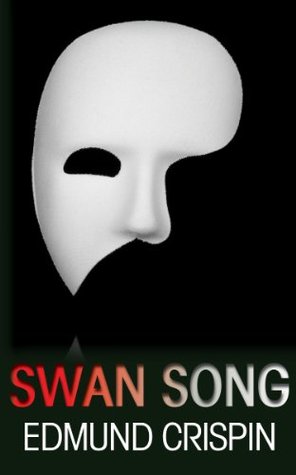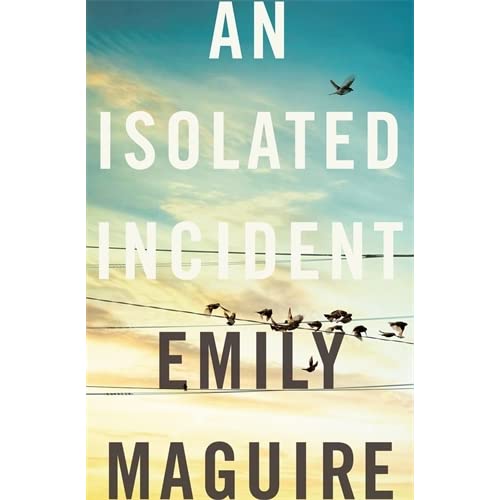Early on in lockdown and following the splendid BBC documentary timed to coincide with the release of the third volume in her Thomas Cromwell trilogy, Chris and I decided to watch the TV adaptation of Hilary Mantel’s Wolf Hall, which we had missed the first time around and streaming on iPlayer. Mark Rylance’s superb portrayal of Cromwell, together with a wonderful score, the most incredible set designs and costuming and all round attention to detail made Wolf Hall one of my standout small screen experiences of the year so far. The care that had been lavished on this production and above all a deep love and understanding of the source material was evident in every frame and I was only sorry I hadn’t got round to watching it sooner. I enthused about the series to my mother (oh yes, and Morse Suppers are back!) encouraging her to get into it if only for Rylance.
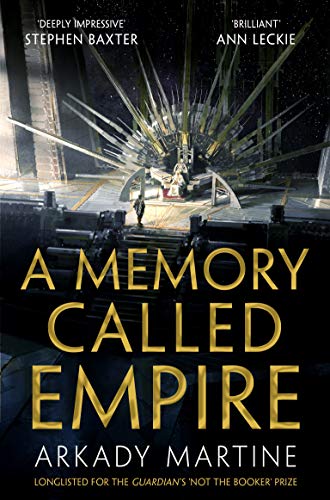
“I don’t think so,” she said, once I’d finished rhapsodising. “All those people in cloaks and big dresses, politicking and then having their heads cut off. Not for me.”
I could have gone on about how unfair a judgement that was on the magnificence of what had been achieved, but then, I realised, I couldn’t exactly tell her she was wrong, either. As a baseline summary, hers was actually pretty fair, one that caused me to consider the nature and purpose of historical fiction more generally and how closely allied that genre is with space opera, a comparison that sounds unlikely but that becomes more resonant the more I think about it.
As Jonathan Strahan said on a recent episode of The Coode Street Podcast (do listen, it’s great), ‘any stirring space opera adventure is by its nature epic fantasy,’ and for me at least, looking at space opera through the lens of historical fiction has come to seem far more apposite and useful than trying to interrogate it as science fiction. The paraphernalia of most space opera – planet-spanning empires, faster-than-light travel, jump-gates, fleets of intergalactic battle-cruisers, sworn allegiances and deadly betrayals – is surely the stuff of fantasy by any other name, and as the most popular recent TV franchises demonstrate, this kind of epic fantasy draws much of its inspiration either directly from realworld history, or from the fiction derived from it. Being honest about this, rather than attempting to squeeze space opera inside an ill-fitting science fictional rationale, not only makes better sense in terms of writing criticism, it actually renders the genre more enjoyable, engaging and rewarding, as Strahan himself put it. Or at least it does for me.
The protagonist of Arkady Martine’s debut A Memory Called Empire is Mahit Dzmare. Mahit is a native of Lsel Station, the hollow bathysphere that is the population centre of the Lsel system, a small group of uninhabitable planets whose metallic ores form the main export and livelihood of the thirty thousand souls for whom Lsel Station is home. Lsel Station is a relatively young polity, its history spanning just fourteen generations. It is nonetheless proudly independent, and determined to preserve its integrity against the vast and ancient neighbouring empire of Teixcalaan. When Lsel Station’s ambassador to Teixcalaan stops communicating with home, Mahit is hastily dispatched to the City in his place. As a new and inexperienced negotiator, she must both seek to maintain the good diplomatic relations that have been established, whilst at the same time endeavouring to discover exactly what happened to her predecessor and what he had been planning. When Mahit learns that Yskandr Aghavn, the former ambassador, is dead, she quickly comes to suspect that he has been murdered.
Though fluent in Teixcalaanli and steeped in City culture and politics from a young age, Mahit is viewed by her Teixcalaanlizlim hosts as a barbarian. Largely incurious about Stationer culture, language and social mores, the Teixcalaanlizlim have until now remained ignorant of Lsel Station’s reliance on symbiosis to preserve their collective memory and body of knowledge. As Mahit takes up her position in the ambassador’s apartments, her hosts do not know that she carries within her an imago, a digital copy of her predecessor that allows her not only access to Yskandr’s memories, experience and knowledge, but also creates of the two of them a kind of joint entity, a person that is still entirely Mahit Dzmare whilst embodying the living spirit of Yskandr Aghavn. That Yskandr’s imago is fifteen years out of date, and therefore has no knowledge of why or how he came to be dead, provides an additional problem Mahit will have to navigate. With terrorist incidents and increasingly violent protests suddenly rife in the City, Lsel Station seems more at risk than ever of losing its independence, of being subsumed by an empire that views it as disposable.
One of the complaints most commonly levelled at genre science fiction is that the proliferation of characters, combined with the ‘funny names’ and ‘unfamiliar technology’ that constitute its trappings makes it difficult to get to grips with unless you are a seasoned and practised reader of SF and fantasy. I am and always have been in two minds about this complaint. Yes, A Memory Called Empire does require a degree of concentration and commitment from the reader, especially at the outset – there is a lot to get to grips with, and quickly. Does it require more concentration than Wolf Hall though, or War and Peace, come to that? I’m not sure that it does. Martine helpfully provides a glossary of terms and character names – as Tolstoy provides a family tree at the opening of War and Peace – but as I was reading the book on Kindle I didn’t know it was there until I reached the end, by which time I was comfortably familiar with all the information it contained and so did not need it anyway.
I am under no illusion that many readers of mainstream literature would reject this book as ‘unreadable’ a couple of pages in. But are they any less closed-minded than readers of space opera who are unwilling to give James Joyce’s Ulysses a try on the grounds that it is ‘too difficult’? I’ve thought about this a lot, even written about it sometimes, and have broadly come to the conclusion that all readers have their comfort zones, many are unwilling to get out of them and most genres and modes of literature are ‘specialist’ to a degree. In order to determine how far a book is successful, or satisfying, we need to dig deeper. We need to look further than at the label that has been attached to it.
I have read a lot of Hilary Mantel (three of her contemporary novels as well as her memoir and her most recent short fiction collection), but I have not read the whole of the Wolf Hall trilogy. I have read Bring up the Bodies, because I thought it was important to get the sense of what these books were like and because I have always been fascinated by the power struggle that ensued around the rise and cataclysmic fall of Anne Boleyn. I found the book engaging and entertaining, full of intelligence and witty analysis, elegance personified. I also found it rather one-note, almost bland when compared for example with Beyond Black or Eight Months on Ghazzah Street. Mantel is one of my writing heroes, but I know I am something of an outlier in preferring her contemporary works to her Cromwellian magnum opus. I also know that this comes down to my personal preferences rather than any diminution of quality in Mantel’s work.
For the most part, I have always found this kind of reconstructive historical fiction – novels in which historically famous people are made to say things and think thoughts we cannot for the most part know they ever said or thought – difficult to get on board with. Reading Bring Up the Bodies, I kept thinking how much I’d love to get away from the royal palaces – compelling though the court intrigue is – and out into the provinces. How much I would have preferred to be reading a novel about a young woman in an English market town, learning to read and write against her stepfather’s wishes, becoming obsessed with the new queen maybe as the royal drama unfolded down in London. About the claims and counter-claims amongst the villagers and tradespeople as the rumour that Boleyn was a witch began to spread and take hold. Similarly, I wouldn’t now be overwhelmed with enthusiasm at the prospect of a novel about the occupants of No 10 Downing Street scrambling to conduct damage limitation strategy on the Barnard Castle fiasco – we have Tim Shipman for that. I would be more inclined to read about a nurse bringing up three kids on her own whilst working on the medical front line, her daughter worried about her university place amidst the cancellation of exams, her youngest son trying to mitigate his unspoken terror of the virus by incorporating it into the world of his favourite computer game.
I prefer close focus, intimate worlds, the armreach of history revealed through the handsbreadth of personal experience. I don’t want to watch an advert for the latest iteration of digital technology – I want to see how that technology affects individuals, here, on the ground.
These preferences, I hope, go some way to explaining why I always get something of a sinking feeling around space opera. It is all too tidy, too forward-thrusting, too shallow. I remember having exactly the same feeling when I read Ann Leckie’s Ancillary Justice, and more recently Yoon Ha Lee’s Ninefox Gambit. In both cases I became mildly invested in the story – I find getting invested in stories remarkably easy – and even enjoyed my time spent in its world. But once I’d finished reading, that was that. As text, neither of these novels made much of an impression, and beyond a basic plot outline I could barely tell you now what actually went on in them.
This is not – and I want to stress this – for want of ideas or ambition on the part of the authors. What I find most admirable about the new space opera is the way in which a fresh generation of SF writers are using space opera actively to deconstruct and analyse aspects of our realworld politics, past and present, in ways not too dissimilar from what Mantel is doing in her Wolf Hall trilogy. There is a wealth of intellectual engagement in A Memory Called Empire, as Arkady Martine uses both her characters and her setting to examine the experience of colonised peoples, the relationship between the individual and the body politic, the social and cultural morality of assimilation. Much has already been written about these aspects of the novel, and I would encourage anyone reading this essay to also take a look at Catherine Baker’s excellent review at Strange Horizons for a view of the novel very different from my own.
Because what I don’t get from A Memory Called Empire is any real depth. The characters have characteristics and yes, they are distinguishable from one another but they exist entirely in subservience to the plot. We have no idea what kind of upbringing either Mahit or Yskandr enjoyed on Lsel Station. We have no idea what Nine Adze was like at school. We don’t have a clue how His Brilliance the Emperor Six Direction likes to spend his downtime. The novel is all events: this happened, then this, then this, then this. And sadly it is the same with sense of place. Yes, we know that the City is rapturously beautiful around its centre with some slummy outer districts none of the tourists ever get to see. But the setting feels disappointingly generic, the blocked-in backdrop to a game, a hodge-podge of pre-used tropes (marbled halls, elegant formal gardens, super-highways linking one part of the City to another). What of the rest of the planet? What of the climate, the terrain? And again, how and where do ordinary people live when they’re not demonstrating in the streets either for or against the emperor incumbent?
I would undoubtedly have found more tolerance for this lack of an emotional and geographical hinterland had a stronger attempt been made by Martine to create an alien culture and way of life I could genuinely believe in as alien. What I get instead is a world saturated with the assumptions, language, humour (oh so millennial) and even fannish in-jokes of the American demotic, twenty-first century variety. In other words, even the worldbuilding, which appears so inventive and richly textured at first glance, is thin, overly reliant on a readership already familiar with these kinds of milieux to fill in the gaps. For comparison, have a look at the solidly constructed, deeply imagined, bracingly tactile worldbuilding on display in Le Guin’s The Left Hand of Darkness, or the powerful, nerve-jangling testimony of Severian in Gene Wolfe’s The Shadow of th Torturer, and you’ll see what I mean.
I did appreciate Martine’s decision to include short sections of ‘found texts’ from both Stationer and Teixcalaanli sources at the head of each chapter – I always love stuff like that, and it probably won’t come as any surprise to learn that the most interesting part of the novel for me is the role played by epic poetry in Teixcalaanli culture. The section near the end, in which Mahit helps her official liaison (and love interest) Three Seagrass to construct a poem that will also act as an encoded statement of resistance to the unfolding military coup, the way in which that poem goes viral and evolves its identity as it reaches more users – I liked this very much, indeed I would vastly have preferred it if the entire book had been about Mahit’s conflicted relationship with Teixcalaanli poetry and her parsing of its contradictions through scholarship. That, or her rejection of the imperial tradition as she begins to forge a new form of modernist poetry that is inalienably of Lsel Station.
I am always going to prefer Ulverton to Bring Up the Bodies. I am always going to prefer China Mountain Zhang to A Memory Called Empire. I am just that kind of reader, and writer. Whatchya gonna do?
In terms of its worthiness to be included on this year’s Clarke Award shortlist, I will say that I understand perfectly why this book has been selected. In the themes it addresses as well as the smart, progressive and action-filled manner in which it addresses them, A Memory Called Empire is a good example of contemporary space opera, one many of today’s readership will enjoy and feel passionately about. As a debut novel in this subgenre it is entertaining, enjoyably complex and professionally executed. Whether the novel is outstanding per se, and whether being a good example of something – a measure of where the field is at as opposed to where it might set its sights – is a good enough reason for choosing it as one of the six best science fiction novels of the year, will, as always, come down to the judgement and proclivities of individual readers.
